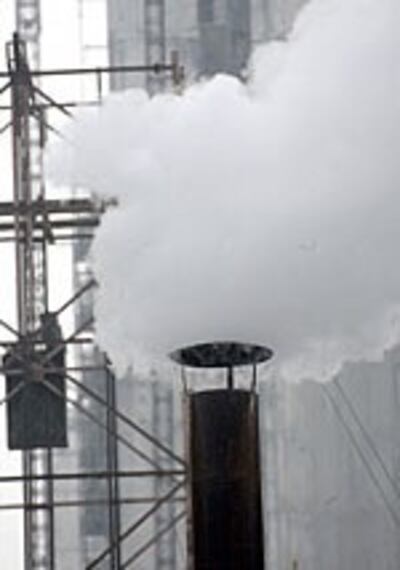
WASHINGTON—China is once more attempting to solve massive energy shortages by forcing businesses to close during peak summer months, but experts say nationwide improvements to energy efficiency and reforms of the centrally planned price structure are the key to the country's power problems.
Shanghai—China's biggest consumer of energy—has ordered 3,000 businesses to take forced vacations this summer because of power shortages, marking the third year in a row of costly shutdowns, state media reported.
"It's an interim solution and it would appear to be based on the assumption that all will be well tomorrow because we will have that much more power capacity available, but it doesn't actually get to the root of the problem," Philip Andrews-Speed, China energy expert at the University of Dundee, told RFA in a recent interview.
Investment environment affected
"There are no incentives for efficiency, and they could be brought in either through raising end-user power prices, which is being resisted at the moment, or they could say, for example, that the most inefficient energy users will be shut down in the summer. But if you have a certain level of efficiency, then you'll be allowed to operate."
The Shanghai shortages are part of a nationwide problem in China, where electricity output rose by 14.5 percent last year but was still unable to keep up with demand. The government has blamed the problems on an overheated economy and coal shortages.
Even though coal production rose by 17.3 percent last year, the increase wasn't enough.
Andrews-Speed said the cuts were likely to affect investment in China.
"If this continues year after year and maybe the number of companies and the number of weeks increases, then certain areas of China are going to become progressively less attractive for investment," he told RFA reporter Michael Lelyveld.
Price reform politically risky
Other analysts agreed that fundamental reforms to China's power sector were necessary.
"This is all a short-term thing, and I think the government should realize, and I think they have realized, that they need to continue to do the fundamental reform of the power sector," Kang Wu, of the East-West Center at the University of Hawaii, told RFA.
"And the only problem is with the tight supply and the high prices, it may feel difficult and politically risky to do too much of the reform in this environment," Wu said.
Experts said China appeared to be treading carefully because of concerns about a sharp economic—and social—reaction to a major rise in power prices.
"There's always concerns about stability in China," Jason Feer, Singapore bureau chief for the industry weekly Petroleum Argus, told RFA.
"There's always a concern that if the government introduces some sort of dramatic economic change, such as raising power prices across the board, that that will raise questions about the stability of the government."
"How much will people accept and how much can people afford to pay before they will have been pushed too far?" Feer said.
Agency's powers controlled
Official media reported in March that Beijing would address the problems by appointing a "national leading group," bringing together top government officials with academics and industry experts to formulate a policy approach.
But as long as the government tries to avoid the consequences of a big rate increase, it is likely to keep the authority over power prices divided or tightly controlled, Feer said.
"If they create an autonomous agency that's in charge of setting rates and charge them with levying reasonable power tariffs, they're likely to set prices substantially higher than where they are now, and that's likely to touch off some sort of reaction."
Robert Ebel, director of the energy and national security program at the Center for Strategic and International Studies in Washington, agreed that the government was unlikely to take the risk of letting power prices seek market levels.
"They're not going to deregulate at this time because Lord knows what would happen if they let the market decide," he said.
Meanwhile, controlled electricity prices are encouraging Chinese industry to use more energy for every unit of output.
According to the National Bureau of Statistics, the energy consumption needed to create 10,000 yuan (U.S.$1,208) of gross domestic product last year rose by 5.3 percent compared with the previous year.
Original reporting by Michael Lelyveld. Produced in the Wu (Shanghai) dialect by RFA's Mandarin service, directed by Jennifer Chou. Produced for the Web in English by Luisetta Mudie.
